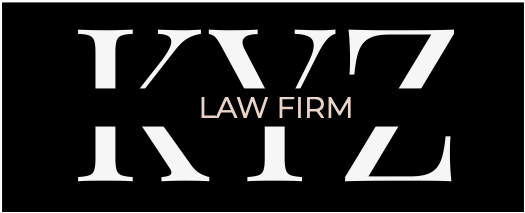Imagine you're a company offering an airborne lidar tool for archaeological exploration. This cutting-edge technology can map ruins and Mayan villages with unprecedented detail. One of the key differentiators of KYZ Law firm is our commitment to understanding the intricacies of your business. By delving into the specific details of your airborne lidar technology, we can craft a contract that effectively addresses your unique needs. KYZ Law would pay particular attention to Data Accuracy and Precision.
This imaginary scenario does not address cross-border transactions in the airborne lidar contract. When dealing with cross-border transactions, it's crucial to address potential legal, regulatory and cultural complexities with an emphasis on cultural sensitives and choice of law.
Diving Deeper into the Airborne Lidar Contract- Understanding the Unique Aspects of Your Business
- Data Accuracy and Precision
-
- Tolerances: What level of accuracy and precision is required for the data collected?
- Quality control: How will you ensure the quality and reliability of the data?
- Project Scope and Deliverables
-
- Clarity is key: Clearly outline the specific services you'll provide, including data collection, processing, and analysis.
- Specific deliverables: What exactly will you deliver to the client (e.g., raw data, processed data, maps)?
- Project timeline: What is the expected timeline for completing the project, including data collection, processing, and delivery?
- Intellectual property: Address ownership of the data collected and any resulting intellectual property.
- Environmental Considerations
-
- Permits and regulations: Are there any specific permits or regulations that need to be followed for airborne lidar operations?
- Environmental impact: How will you mitigate any potential environmental impact of your operations?
- Intellectual Property
-
- Data ownership: Who owns the collected data? Will the client have exclusive rights or a limited license?
- Copyright and patents: Are there any intellectual property rights associated with the lidar technology or the data collected?
- Payment Terms and Conditions
-
- Milestone payments: Consider structuring payments based on project milestones to mitigate risk.
- Late payment penalties: Include provisions for late payments to incentivize timely payments.
- Liability, Indemnification and Insurance
-
- Third-party liability: How will you address potential liability for accidents or damage caused by your operations?
- Insurance requirements: Will you require the client to maintain specific insurance coverage?
- Risk allocation: Determine who is responsible for liabilities arising from the project.
- Indemnification clauses: Protect your business from potential claims or damages.
- Confidentiality and Data Security
-
- Protect sensitive information: Ensure confidentiality clauses protect both parties' proprietary data.
- Data ownership: Clearly define who owns the collected data and how it can be used.
- Sensitive data: What type of sensitive data will be collected, and how will it be protected?
- Data breaches: What measures will be in place to prevent and respond to data breaches?
- Termination and Dispute Resolution
-
- Termination grounds: Outline circumstances under which either party can terminate the contract.
- Dispute resolution: Agree on a method for resolving disputes, such as mediation or arbitration.
- Force Majeure
-
- Unforeseen events: Address unforeseen events that could impact the project, such as natural disasters or government regulations.


